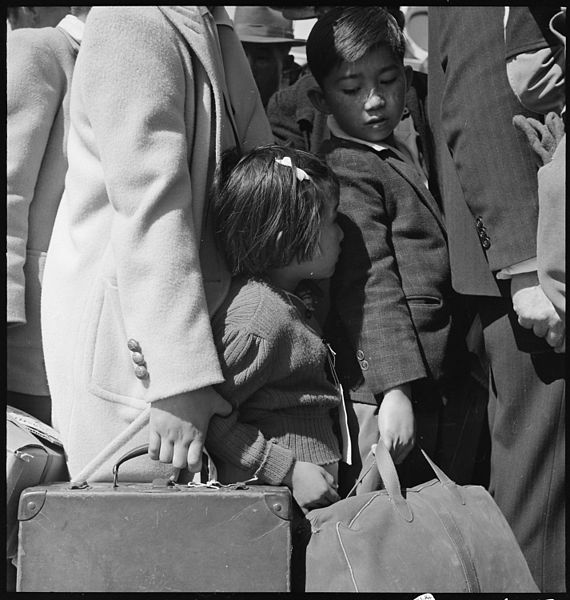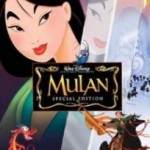
By Jae-Ha Kim
jaehakim.com
May 24, 2013
There’s a funny video floating around on social media that’s getting a lot of attention. It shows a young woman of Asian descent preparing for a jog. A white man starts a conversation with her with the dreaded, “Where are you from?” For a lot of people, this is an innocuous enough question. If you say, “Maine,” or “California,” or “Florida,” that’s usually the end of the conversation.
However, if you look like I do, the series of questions won’t stop until your lineage is traced back to ancient fill-in-the-blank.
For me, it is true that I come from somewhere else. I am a first-generation immigrant. And while I have the same Midwestern accent that most Chicagoans have, I also have a distinctly ethnic name that lends an aura of otherness. But, there are many more U.S. citizens who look like me who were born in the United States, who are still asked, “Where are you from?”
I tried to explain this to a group of friends once. One of the women said that I was over reacting, that she gets the same questions when she says she’s from the East Coast and that Chicagoans don’t accept her as a Midwesterner. Yes, I said. That may be true. But no one ever questions that you’re an American.
I spent the majority of my newspaper career writing about the arts. Nothing particularly controversial. Still, you’d be surprised at the vitriol that was unleashed when I mentioned that Clay Aiken needed more touring experience, or that bands such as Metallica should set a safer climate at their concerts for female fans.
The hate mail and phone calls that rolled in almost all were along the lines of: “You don’t know what you’re talking about. In American culture…” Or: “You don’t know anything about the U.S. of A. I don’t know why the paper would hire someone who doesn’t even speak English.” (Yes, because apparently I have this amazing ability to write English, without being able to speak it.)
Every time someone asks me where I’m from (No, where are you really from), it reinforces my belief that to many people, Asian-Americans are still considered to be outsiders. It wasn’t too long ago that third generation Americans were interned in concentration camps right here in the United States. It wasn’t the Americans of German or Italian descent who were locked away during World War II, but rather those of Japanese heritage.
Oh, and about that video I mentioned at the top of this post. It’s funny and definitely worth a watch. The two actors are spot on. Oddly enough, it comes courtesy of Ken Tanaka, whose youtube user name is helpmefindparents. In his bio, he says he was born in the U.S. and adopted by a Japanese couple, who raised him in the Shimane Prefecture of Japan. He is back in America searching for his birth parents, John and Linda Smith.
Um. Sure. Because there are so many Japanese couples looking to bring home white children to the Shimane Prefecture.
According to Wikipedia, Tanaka actually is David Ury. I get that he’s a comedian and that he has a schtick. But I don’t find it funny to make a joke about being adopted. There are literally thousands of adoptees who are searching for their biological parents, and most will never find them.
That is not a laughing matter.
© 2013 JAE-HA KIM | All Rights Reserved






Hmm… Interesting information about the creator of that video.
LOVED what you wrote!
You cover so many topics here, it’s 5 columns in one.
My mom left Ireland for Chicago 60 years ago and gets asked about Irish music & Irish dance, or Irish beer. My Filipino wife left Manila 30 years ago and gets asked about Journey, Manny Pacquiao & The Thrilla In Manila. My German relatives don’t get any questions or comments.(?!)
The perpetual foreigner myth has always been a source of grief for me, being considered always the outsider within the normalcy of the white gaze. Never quite “Canadian” (or “American”) enough, and despite people like us having immigrated from Korea at an early age, we’re always and forever “the immigrant.” And when we manage to voice our struggles against this “other” label, we get shut down, even by our own friends. I thought this post perfectly articulated that feeling of frustration of being seen as the perpetual alien in your home country. You just feel so marginalized.
That being said, excellent post! Glad there’s a new comments section now!
Charlotte, thank you for sharing your thoughts. You pretty much encapsulated what I was trying to say in my post, but you did it much more eloquently than I did. 🙂
Curiosity isn’t necessarily anything but! As for the commentary you received while writing, I think it’d be safe to discount most flak as racism or jealously — or something in between. Anywhom!
This picture breaks my heart. They are dressed so well in their suits and nice clothes to be sent to a concentration camp. This is a shameful part of U.S. history that should never be repeated. I hope you have a very happy Memorial Day, Jae.
Oh wow, I didn’t know he did that..that is obnoxious. I’m with you, I hate when people makes insensitive remarks or jokes about adoption..
as an adoptee, like jae-ha says, i was also really put off by this.
people think its funny to joke about the fact that adoptees spend their lives looking for their parents?? what the fuck? do these people have no capacity for empathy?
adoption jokes/comments are all over the place and people don’t even fucking pick up on it. i can’t even count how many times i’ve heard people lightly say they “wish they had been adopted” or joke that their sibling is “adopted” if they do something stupid or that they don’t want to be associated with. do you remember the joke in the avengers when thor, after first insisting that loki is his brother, finally says “he’s adopted” when confronted with the fact that he’s killed a 80 people. i remember sitting in the theater stunned when literally EVERYONE, including my boyfriend at the time, had a big belly laugh at that one. at that moment, i felt completely lonely, even with my boyfriend (at the time) at my side. i was stunned that was even funny to people, but i guess i shouldn’t have been surprised, i’ve been listening to this kind of insensitive shit all my life. and when adoptees and adoptive parents took to the internet to criticize it, they were met with ridicule and hostility backed up by illogical rationalization (“The “he’s adopted” punchline shows us that Thor has enough of a sense of humor to correct himself, and that he’s distancing himself and all of Asgard from Loki’s treachery.” – ummm thanks for illustrating criticizer’s points??) i’m so fucking tired of adoption being used as the punchline to a joke. this is real people’s lives, trauma and pain, it’s not a fucking joke.
So the creator of the viral “Where Are You From?” video by supposed adoptee “Ken Tanaka” is just some white guy named David Ury posing as an adoptee searching for his birth parents…
Great commentary, spot on how I feel as a first generation immigrant, U.S. citizen, English speaker with no foreign accent, just a slight Boston one.
The reality that Ken Tanaka lives in is a bright one, although perhaps perpetually overshadowed by the fact that he never achieves the satisfaction of finding his birth parents. His reality is perpetually side-tracked by the minute, by friendship or by wanting to purely entertain us. At times, Tanaka plays the role of educator and has produced two videos showing how one can communicate in Japanese without having to actually speak a word of Japanese. This is particularly interesting to those of us who have been immersed in Japan and how interact through these ways of communicating in our daily life: the perpetual nodding of the head, the shifting eyes not penetrating, but hesitant, the “heeeee” and “unnn” of affirmation or the “tshhhhhh” and tilt of the head while disagreeing. This playful look at the Japanese way of gesturing is humorously yet skillfully pulled off by Tanaka and friends.